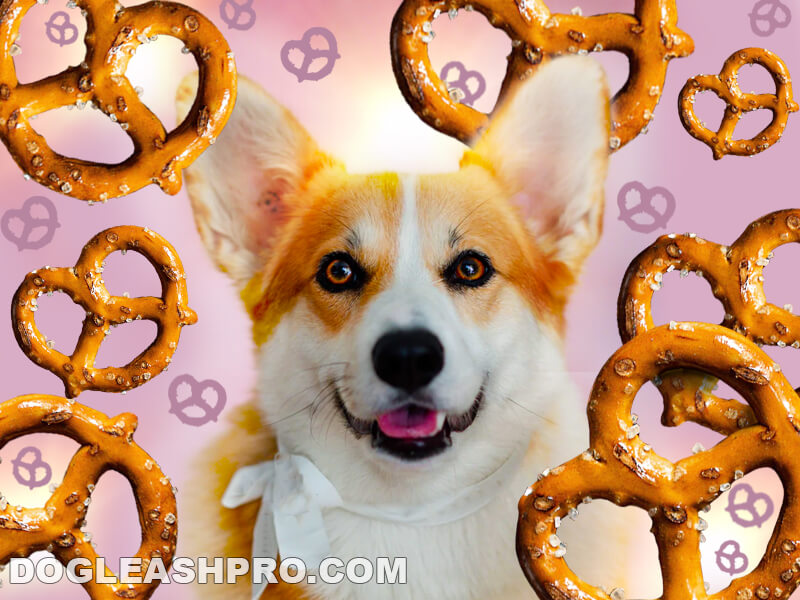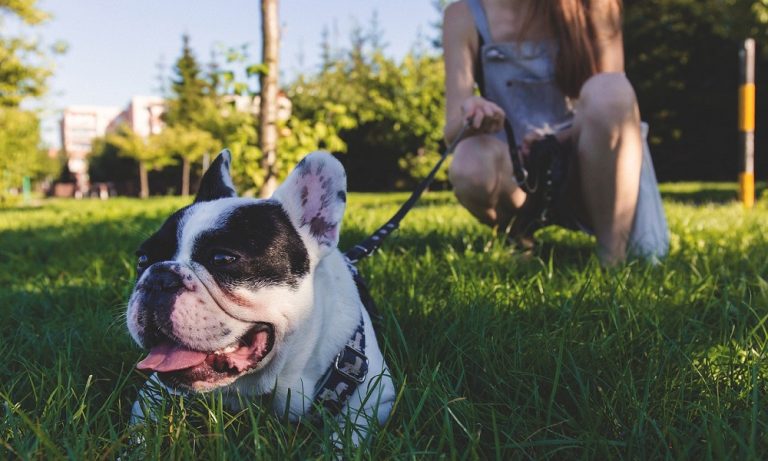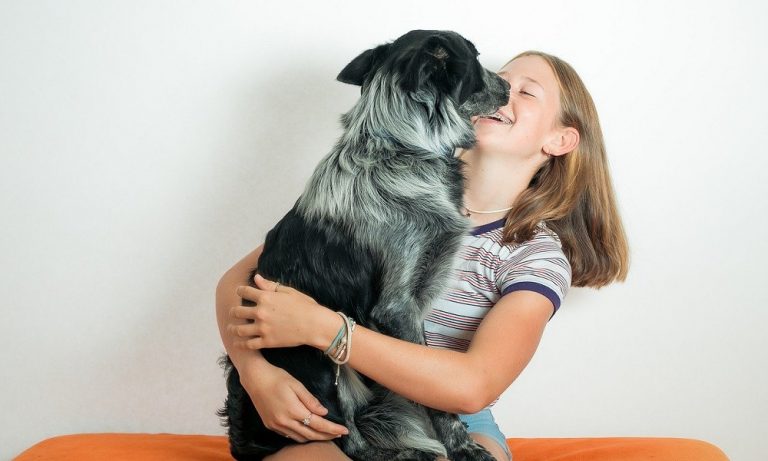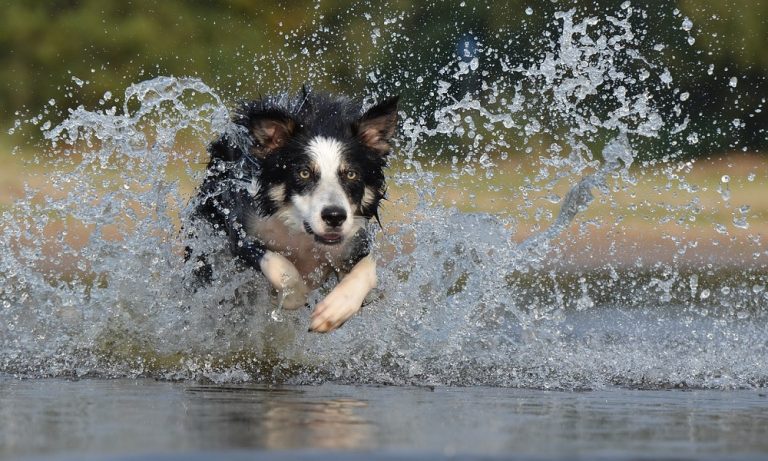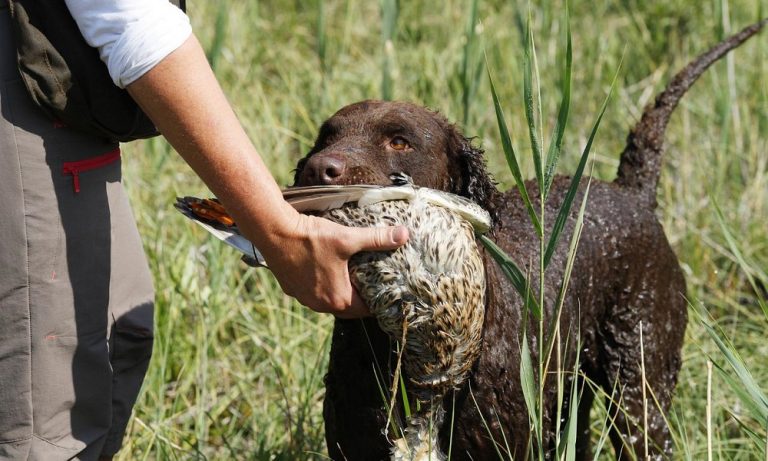Can Dogs Eat Peanut Butter Pretzels?
Feeding dogs human food can be a bit of a minefield, and peanut butter pretzels are no exception. While plain, unsalted pretzels in moderation might be safe for dogs as an occasional treat, the addition of peanut butter introduces some concerns.
Peanut butter itself is often considered safe for dogs in small amounts due to its protein content, healthy fats, and vitamins, but it’s crucial to check the label for additives like xylitol, a sugar substitute toxic to dogs. Moreover, the salt content in pretzels can be problematic for dogs, potentially leading to sodium ion poisoning.
Excessive salt intake might lead to increased thirst, urination, vomiting, diarrhea, or even more severe health issues. If you’re set on sharing a treat like peanut butter pretzels with your furry friend, it’s best to opt for a small amount of plain pretzel without added salt, and ensure that the peanut butter doesn’t contain any harmful ingredients.
As a responsible pet owner, it’s essential to prioritize your dog’s well-being when considering sharing human snacks. Peanut butter pretzels, while tempting, should be approached cautiously due to potential health risks.
If you’re looking for safe and enjoyable treats for your dog, there are plenty of dog-specific snacks available on the market that are designed to meet their nutritional needs without any harmful additives.
When in doubt, it’s always a good idea to consult your veterinarian before introducing new foods into your dog’s diet, as they can provide personalized guidance based on your dog’s specific dietary requirements, health condition, and any potential allergies they may have. Your dog’s safety and health should always come first when deciding what treats to share with them.
Are Pretzels Ok for Dog?
No, pretzels are not recommended for dogs. Pretzels contain a lot of salt and sugar in them, which can be detrimental to their health. Dogs lack the ability to digest large amounts of salt or sugar without it causing damage to their organs.
In addition, certain varieties of pretzel may also contain garlic powder or onion powder, both of which can be toxic to dogs if consumed in large quantities. If your dog does consume any pretzel snacks, make sure they are plain and do not contain any added flavors or spices that could harm them.
It is best to stick with treats specifically designed for dogs as these will provide all the nutritional benefits without risking potential health problems from consuming human food products like pretzels.
Why Can’t Dogs Eat Peanut Butter?
It is important to remember that dogs cannot safely eat peanut butter. Peanut butter can be a healthy snack for people, but it is not recommended for dogs due to the high levels of fat and sugar.
Peanut butter also contains aflatoxins, naturally occurring toxins produced by certain types of mold which can cause liver damage in dogs if consumed in large amounts over time. In addition, some brands of peanut butter contain xylitol, an artificial sweetener which is toxic to dogs.
Xylitol can cause hypoglycemia (low blood sugar) leading to seizures and even death if consumed by your canine companion. So be sure you check the ingredients before giving any peanut butter treats to your pet!
Is Peanut Butter Snacks Good for Dogs?
Peanut butter snacks can be a great treat for dogs, but like with any food that you give to your pup, it is important to make sure the peanut butter snack is healthy and safe. Peanut butter contains protein, vitamins B and E, niacin and healthy fats which are all beneficial for a dog’s diet.
It also has high levels of heart-healthy monounsaturated fatty acids which can help reduce bad cholesterol in your canine family member. The creamy texture of peanut butter makes it an irresistible treat for most dogs while providing them with essential nutrients they need to stay strong and active.
However, when choosing a peanut butter snack for your pup it is important to look out for those containing added sugar or unhealthy preservatives or artificial ingredients as these can be harmful to their digestive system.
Also make sure that the portion size you offer isn’t too large as this could cause upset stomach or even worse -obesity if overdone! Finally, keep an eye on how much sodium content there is in the product since too much salt intake can lead to dehydration in pups so always go with low-sodium options whenever possible!
All things considered though – if chosen wisely – then yes; peanut butter snacks are definitely good for dogs!
Is Salt Peanut Butter Safe for Dogs?
Salt peanut butter is a popular treat among many dog owners, but it’s important to be aware that it isn’t necessarily safe for all dogs. While salt itself is not toxic to canines, excess amounts of sodium can cause health problems such as dehydration and electrolyte imbalances.
Additionally, some brands contain xylitol; an artificial sweetener which is highly toxic for dogs in large doses. It’s always best to check the ingredients list before feeding your pup any type of peanut butter – if xylitol or other added sugars are present, avoid giving this snack altogether.
When selecting a brand of salt-free peanut butter, make sure you choose one without hydrogenated oils and palm oil as well; these fats are difficult for your pup to digest and may lead to gastrointestinal upset or worse! Lastly, remember that peanut butter should only be given in moderation – too much can lead to weight gain due to its high calorie content.
Potential Health Risks Associated with Peanut Butter Pretzels for Dogs
While the idea of sharing a tasty snack like peanut butter pretzels with your furry companion might seem appealing, there are several potential health risks to be aware of. First and foremost, the salt content in pretzels can pose a significant danger to dogs.
Dogs are much more sensitive to salt than humans, and consuming foods high in salt can lead to sodium ion poisoning. Symptoms of excessive salt intake might include increased thirst, frequent urination, vomiting, diarrhea, lethargy, and in severe cases, seizures or even death.
Furthermore, the type of peanut butter used in peanut butter pretzels is crucial. Some peanut butters contain an artificial sweetener called xylitol, which is highly toxic to dogs. Even small amounts of xylitol can cause a rapid release of insulin in dogs, leading to hypoglycemia (low blood sugar).
This can result in symptoms such as vomiting, loss of coordination, seizures, and in severe cases, liver failure. The combination of peanut butter and pretzels can also be calorie-dense and lead to excessive weight gain in dogs if given frequently or in large quantities.
Obesity in dogs can contribute to a range of health problems, including joint issues, diabetes, heart disease, and a shortened lifespan. It’s important to note that each dog’s tolerance to certain foods can vary, and what might be harmless for one dog could have adverse effects on another.
If you’re considering sharing peanut butter pretzels or any other human food with your dog, it’s best to consult your veterinarian first. They can provide guidance based on your dog’s individual dietary needs, health condition, and potential allergies.
In general, it’s safer to stick to dog-specific treats that are formulated to meet their nutritional requirements without introducing unnecessary health risks.
Are Peanut Butter Pretzels Bad for You?
Although peanut butter pretzels may seem like a delicious snack, they can be unhealthy because of their high levels of added sugar and unhealthy fats. Peanut butter pretzels are often higher in calories than other snacks, so it is important to practice moderation when consuming them.
Furthermore, many brands contain partially hydrogenated oils which have been linked to an increased risk for heart disease and type 2 diabetes.
Conclusion
Overall, peanut butter pretzels are not recommended for dogs. Although the ingredients may be safe for them to consume, salt and sugar can cause health issues in large amounts.
With that said, it is best to avoid giving your dog any type of processed snack food and stick to healthier options like fresh fruits and vegetables.
